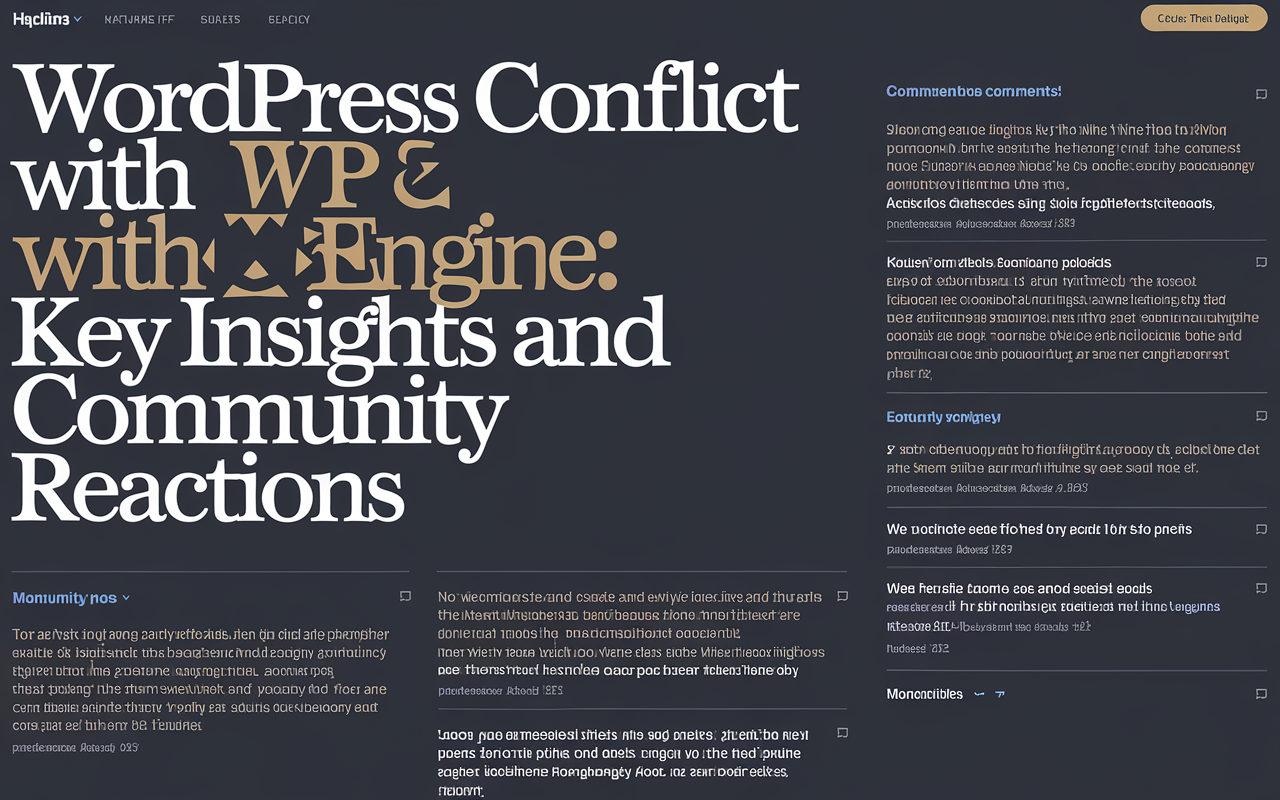The WordPress vs. WP Engine Drama: What You Need to Know 📣
The ongoing conflict within the WordPress ecosystem has taken the spotlight! 🌐 It all kicked off with a heated clash between WordPress founder and Automattic CEO, Matt Mullenweg, and WP Engine, a popular hosting provider for WordPress sites. This drama has major implications for the entire community, and understanding its nuances is crucial for every web developer and business owner relying on WordPress for their online presence.
Background of the Controversy 🔍
WordPress is not only open-source and free, powering around 40% of websites on the internet, but it is also the backbone for many small and large businesses. However, tensions flared when Mullenweg publicly slammed WP Engine, labeling it a “cancer to WordPress” due to their actions concerning the revision history of posts. He points out that the inability for users to track their post revisions compromises data security. 😱
Mullenweg accused WP Engine of cutting costs by disabling a critical feature that safeguards user data. In his opinion, the hosting service's practices may have misled customers into thinking they are associated with WordPress itself, despite being separate entities. 🤔
Legal Wranglings and Responses ⚖️
The conflict escalated when WP Engine issued a cease-and-desist letter to Mullenweg, insisting that his comments might misguide users about their brand relationship. WP Engine defended their position, claiming they are using the “WP” brand under fair use. Meanwhile, Mullenweg and Automattic sent their own cease-and-desist letters, asserting that WP Engine has mismanaged WordPress trademarks. The back-and-forth legal skirmish feels more like a ping-pong match than a corporate dispute! 🎾
As if that weren’t enough, the WordPress Foundation took action by updating its trademark policy, emphasizing that while the "WP" abbreviation isn’t officially trademarked, its use should not confuse users regarding WP Engine's real association with WordPress. The Foundation's position is clear: they want to protect the integrity and identity of WordPress as a brand. 🔒
The Aftermath: Community Impact 🌍
In an unprecedented move, Mullenweg temporarily banned WP Engine from accessing WordPress.org resources, which impacted numerous sites failing to update their plugins and themes. This left many small website owners feeling powerless and frustrated, as they pointed out the significant risks associated with diminished access to crucial WordPress resources. 🙁
Ultimately, on September 27, WordPress.org lifted the ban, but it reignited discussions around the broader implications for the community. Developers and users alike voiced concerns about the potential for further restrictions affecting their tools and workflows.
Community Voices & Future Implications 📢
As the dust settles, influential voices, like John O’Nolan from the open-source platform Ghost, have expressed that no single person should hold such extensive control over a platform powering 40% of the web. The sentiment resonates with many who fear the monopolistic implications of Mullenweg's actions.
As WordPress navigates this complex situation, it remains crucial for the community to seek clarity regarding trademark usage and to voice their opinions on how these developments might affect the freedom and openness that WordPress has always stood for. 💬
Final Thoughts 💭
The drama between WordPress and WP Engine serves as a stark reminder of the complexities involved in open-source platforms and their governance. While the lift of the WP Engine ban offers some temporary relief, the need for dialogue and collaboration within the community is more crucial than ever.
Stay tuned as this story develops! 🚀
Feel free to share your thoughts below! How do you think this conflict will evolve? What should be done to protect the essence of WordPress? Let's discuss! 👇

More Stories
Meta’s AR Ambitions and AI Safety: Insights from the Equity Podcast
Insight Partners Data Breach: A Wake-Up Call for Cybersecurity Awareness
Lovable’s Ascendancy: Anton Osika at TechCrunch Disrupt 2025